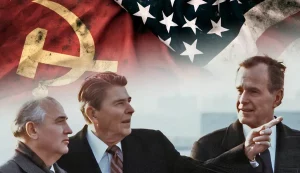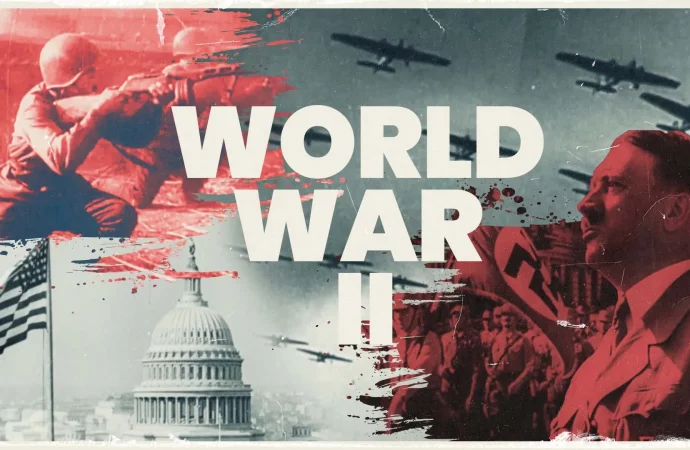Introduction World War II was one of the most significant events in human history, reshaping the world in profound ways. Its impact extends far beyond the battlefield, influencing technology, politics, culture, and society. In this article, we’ll explore 10 key ways World War II has shaped modern society. From the rise of superpowers to advancements in technology,
Introduction
World War II was one of the most significant events in human history, reshaping the world in profound ways. Its impact extends far beyond the battlefield, influencing technology, politics, culture, and society. In this article, we’ll explore 10 key ways World War II has shaped modern society. From the rise of superpowers to advancements in technology, these changes continue to affect our lives today.
Impact of World War II on Modern Society

Image by: Yandex.com
1. The Rise of Superpowers
The war led to the emergence of the United States and the Soviet Union as global superpowers.
- Tip: The Cold War that followed shaped international relations for decades.
- Example: The U.S. and USSR’s rivalry influenced global politics, economics, and culture.
2. Technological Advancements
WWII spurred innovations in technology, including radar, jet engines, and computers.
- Tip: Many wartime technologies were adapted for civilian use after the war.
- Example: The development of the first electronic computers laid the foundation for modern computing.
3. The United Nations
The United Nations was established in 1945 to promote international cooperation and prevent future conflicts.
- Tip: The UN has played a key role in addressing global issues like peacekeeping and human rights.
- Example: The UN’s Universal Declaration of Human Rights set a global standard for human rights.
4. Decolonization
The war weakened European colonial powers, leading to the independence of many nations in Asia and Africa.
- Tip: Decolonization reshaped global politics and created new nations.
- Example: India gained independence from Britain in 1947, inspiring other colonies to seek freedom.
5. The Cold War
The ideological conflict between the U.S. and USSR dominated global politics for decades.
- Tip: The Cold War influenced everything from space exploration to pop culture.
- Example: The Space Race led to significant advancements in science and technology.
6. Economic Changes (H2):
The war spurred economic growth in some countries while devastating others.
- Tip: The Marshall Plan helped rebuild Europe and strengthen Western economies.
- Example: Japan’s post-war economic miracle transformed it into a global economic power.
7. Social Changes
The war brought significant social changes, including increased opportunities for women and minorities.
- Tip: Women entered the workforce in large numbers, paving the way for gender equality.
- Example: The Civil Rights Movement in the U.S. gained momentum after WWII.
8. The Holocaust and Human Rights
The atrocities of the Holocaust led to a greater focus on human rights and the prevention of genocide.
- Tip: The Nuremberg Trials established principles of international law.
- Example: The Holocaust Memorial Museum in Washington, D.C., educates millions about the dangers of hatred.
9. Cultural Impact
WWII influenced literature, film, and art, shaping cultural narratives for generations.
- Tip: Films like “Schindler’s List” and books like “The Diary of Anne Frank” keep the memory of WWII alive.
- Example: War-themed movies and books continue to explore the human experience during conflict.
10. Environmental Impact
The war caused significant environmental damage, but it also led to conservation efforts.
- Tip: The destruction of cities and landscapes prompted post-war rebuilding and environmental awareness.
- Example: The Green Movement gained traction in the decades following WWII.
Growth of International Organizations
The need for cooperation after World War II led to the creation of international organizations. Groups like the United Nations were formed to promote peace and help countries work together. These organizations address global issues such as health, security, and humanitarian aid. Their efforts are crucial in maintaining international stability and encouraging countries to collaborate on common challenges.
Promotion of Human Rights
The impact of World War II led to a stronger focus on human rights. The war revealed the consequences of discrimination and oppression, prompting a global movement to protect individual rights. Organizations like the United Nations established declarations and agreements to promote human rights for all people. This emphasis on equality and justice continues to influence laws and policies around the world today.
Ongoing Conflicts and Lessons Learned

Image by freepik
While World War II ended many conflicts, it also left unresolved issues that continue to affect society. The division of countries and new borders created tensions that led to future wars. Understanding these historical events helps us learn from the past. By studying the causes and effects of these conflicts, we can work toward peaceful solutions and prevent similar situations in the future.
Importance of Historical Memory
Remembering the impact of World War II is important for creating a better future. Learning about the war and what happened because of it helps people think about the value of peace, tolerance, and understanding among different cultures. By studying history, we can build a world that values cooperation and avoids conflicts, making sure future generations have a brighter tomorrow.
Changes in Family Dynamics

Image by freepik
World War II also changed family life. Many families faced tough times, like losing loved ones or taking on new roles. After the war, more women started working outside the home, which changed how families functioned. This shift challenged traditional family roles and sparked conversations about equality and shared responsibilities. Today, families come in many different forms, with various roles and structures.
Economic Globalization
After World War II, globalization began to grow in the economy. Countries started trading more with each other, leading to a more connected world. International agreements and organizations encouraged countries to work together for their mutual benefit. This globalization created more businesses and jobs, allowing people to access goods and services from around the world. It also helped promote cultural exchange and understanding between different nations.
Challenges of Social Change
World War II also highlighted existing social inequalities and sparked movements for change. Many groups, especially women and minorities, sought equal rights after contributing to the war effort. However, challenges remained, such as discrimination and resistance to change. The fight for civil rights and social justice continued long after the war, leading to significant progress but also ongoing struggles.
Future of Global Relations

Image by freepik
The impact of World War II continues to shape global relations today. The lessons learned from the war, such as the importance of cooperation and diplomacy, are essential for preventing future conflicts. As nations work together to address global challenges like climate change and terrorism, the legacy of WWII reminds us of the need for collaboration and understanding in a diverse world.
Analysis Table: Impact of WWII on Modern Society
| Dimension | Impact | Long-term Effects |
|---|---|---|
| Political Changes | Emergence of the US and USSR as superpowers | Ongoing global tensions and power struggles |
| Economic Developments | Recovery programs like the Marshall Plan | Growth of economies and trade between countries |
| Technological Advances | Innovations in aviation and medicine | Continued progress in technology and daily life |
| Social Changes | Rise of civil rights movements | Progress toward equality and social justice |
| Globalization and Migration | Increased migration and cultural exchanges | More diverse and multicultural societies |
Comparative Table: Pre-WWII vs. Post-WWII Society
| Aspect | Pre-WWII Society | Post-WWII Society |
|---|---|---|
| Global Power Structure | European countries held most power | The US and USSR became the main superpowers |
| Economic Conditions | Many countries faced economic struggles | Economic growth and recovery in Western nations |
| Social Hierarchies | Rigid classes and traditional gender roles | New movements for civil rights and equality |
| Technological Innovation | Slow advancements in technology | Rapid growth in technology across various fields |
| Cultural Exchange | Mostly local cultures | Global connections and cultural diversity |
Conclusion
World War II left an indelible mark on modern society, shaping everything from technology and politics to culture and human rights. Its legacy continues to influence our world today, reminding us of the importance of peace, cooperation, and resilience. What do you think is the most significant impact of WWII on modern society? Share your thoughts in the comments below!
















